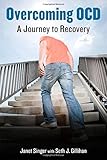 Not only does Overcoming OCD provide advice, support, and hope to parents, but it also talks to some of the struggles that OCD puts on other siblings, the pitfalls to watch out for in certain types of treatments, things (like enabling) to be careful of, and above all, the importance of remaining positive even when the situation looks intractable.
Not only does Overcoming OCD provide advice, support, and hope to parents, but it also talks to some of the struggles that OCD puts on other siblings, the pitfalls to watch out for in certain types of treatments, things (like enabling) to be careful of, and above all, the importance of remaining positive even when the situation looks intractable.
Tag: nonfiction
A review of Black Earth: The Holocaust as History and Warning by Timothy Snyder
To my mind, this is a clear, convincing and rounded account of the Holocaust, the best we have had to date. Snyder makes telling use of Russian, Polish, and Ukrainian sources and he also pays meticulous attention to what the Nazis themselves wrote and said. The result is a context and a narrative in which – and, yes, it sounds almost immoral to say this – the Holocaust makes a kind of sense.
A review of Lists of Note by Sean Usher
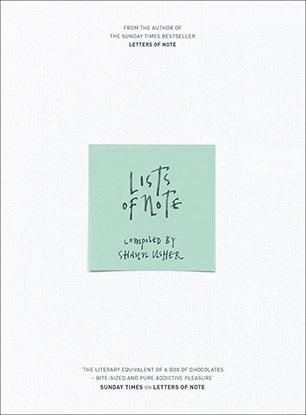 Ultimately, what Lists of Note shows us is that we’re not alone in our desire to tame the rush of information, tasks, and needs that bombards us everyday. Listmaking is both rational and helpful in our chaotic lives and has always been so. More importantly, Lists of Note teaches us that the list, is more than ephemera. It is a key to who we are, and at its best, can actually be a beautiful, and even artistic medium.
Ultimately, what Lists of Note shows us is that we’re not alone in our desire to tame the rush of information, tasks, and needs that bombards us everyday. Listmaking is both rational and helpful in our chaotic lives and has always been so. More importantly, Lists of Note teaches us that the list, is more than ephemera. It is a key to who we are, and at its best, can actually be a beautiful, and even artistic medium.
A review of Smile of a Midsummer Night by Lars Gustafsson and Agneta Blomqvist
 In this illuminating book the authors, who happen to be husband and wife, present a personal view of Sweden, a country most of us know very little about. They do this by way of writing several short essays – there are 29 altogether – focusing on different aspects of Sweden and Swedish life.
In this illuminating book the authors, who happen to be husband and wife, present a personal view of Sweden, a country most of us know very little about. They do this by way of writing several short essays – there are 29 altogether – focusing on different aspects of Sweden and Swedish life.
A review of Small Acts of Disappearance by Fiona Wright
 These are close and moving readings that provide depth and personal insight into the narrative framework, the themes that pivot around mental illness and hunger, and the characters that become Wright’s partners through her own recovery. It’s not a facile recovery though. The memory of hunger is almost as acute as the hunger itself.
These are close and moving readings that provide depth and personal insight into the narrative framework, the themes that pivot around mental illness and hunger, and the characters that become Wright’s partners through her own recovery. It’s not a facile recovery though. The memory of hunger is almost as acute as the hunger itself.
A review of Heal Your Gut by Lee Holmes
 I didn’t realize until reading Heal Your Gut just how critical good gut health is, and how integrated gut health is with overall health. For people who are really suffering with gut issues, and I know from personal experience that this is not fun and can be debilitating, following Holmes’ full protocol can be life changing. For everyone else, this is a very useful resource that will help improve the diet, improve gut function and overall well-being, while providing a treasure trove of easy to follow gut-friendly recipes suitable for the whole family.
I didn’t realize until reading Heal Your Gut just how critical good gut health is, and how integrated gut health is with overall health. For people who are really suffering with gut issues, and I know from personal experience that this is not fun and can be debilitating, following Holmes’ full protocol can be life changing. For everyone else, this is a very useful resource that will help improve the diet, improve gut function and overall well-being, while providing a treasure trove of easy to follow gut-friendly recipes suitable for the whole family.
A review of Strength to Be Human by Mark Antony Rossi
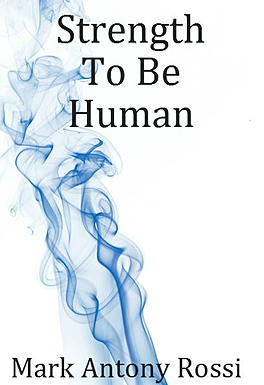
A review of The Frugal Book Editor by Carolyn Howard-Johnson
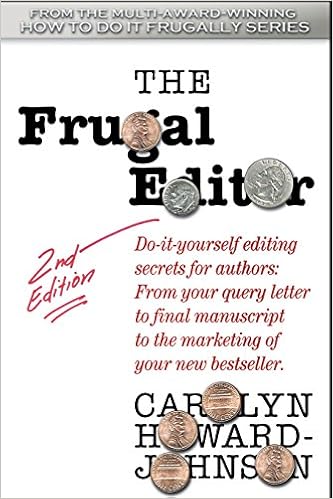 This book fills a very special niche between the dry, technical style manuals and the more user-friendly, kinder-gentler teacher approach. Howard-Johnson’s presentation gives us the feeling that we are seated in her classroom (she is, in fact, a UCLA Writers Program Extension instructor) with the benefit that she will not disappear at the end of the semester.
This book fills a very special niche between the dry, technical style manuals and the more user-friendly, kinder-gentler teacher approach. Howard-Johnson’s presentation gives us the feeling that we are seated in her classroom (she is, in fact, a UCLA Writers Program Extension instructor) with the benefit that she will not disappear at the end of the semester.
A review of Casino Women by Susan Chandler and Jill B Jones
 It’s pretty rare these days to find something that offers such rich descriptions of the labor forces in the world’s most lucrative industries. The experiences are genuine and highlight themes like intellectual frustration, exploitation, and physical pain, common issues encountered by female workers in casinos, but more importantly, female workers throughout all sectors.
It’s pretty rare these days to find something that offers such rich descriptions of the labor forces in the world’s most lucrative industries. The experiences are genuine and highlight themes like intellectual frustration, exploitation, and physical pain, common issues encountered by female workers in casinos, but more importantly, female workers throughout all sectors.
A review of Words Without Music by Philip Glass
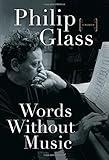 There is so much to learn here, not just about Glass, but about ourselves—how to live, how to learn, how to create. Towards the end of the book, Glass talks about his work on his Cocteau Trilogy in which he says, of Cocteau, that he “is teaching about creativity in terms of the power of the artist, which we now understand to be the power of transformation” (378) The same can be said of Words Without Music.
There is so much to learn here, not just about Glass, but about ourselves—how to live, how to learn, how to create. Towards the end of the book, Glass talks about his work on his Cocteau Trilogy in which he says, of Cocteau, that he “is teaching about creativity in terms of the power of the artist, which we now understand to be the power of transformation” (378) The same can be said of Words Without Music.